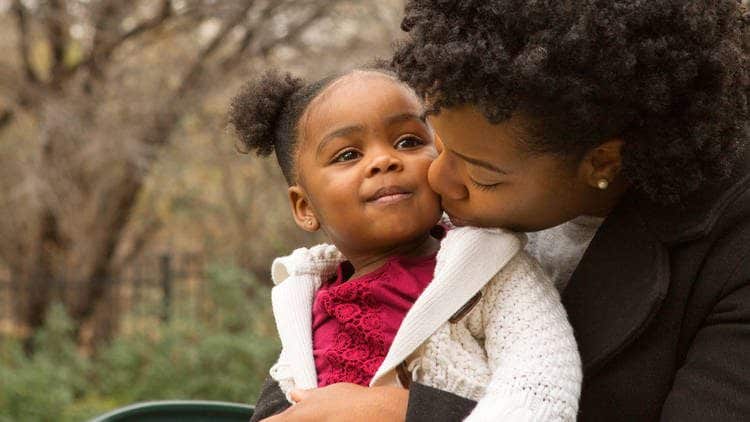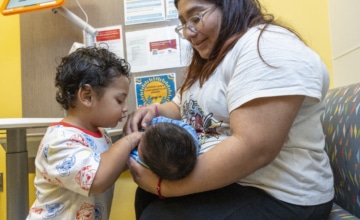By Claire Lerner
Explaining any complex concept to a very young child can be quite challenging. Here are some tips to help guide you in this process.
Finding the right words to help children understand a separation or divorce can be especially difficult given how emotionally charged this is for everyone. Between ages 2 ½ and 3, when children are developing logical thinking, you can begin to help them understand. The following are some ideas to guide you in this process. Remember, you will likely have to explain this change again and again—repetition is how toddlers process, learn, and make sense of new information.
Explain what divorce means:
“Mommy and Daddy do not get along anymore. We have decided to live in different houses. Mommy and Daddy still love you very much and we will take very good care of you.” Do not discuss each other’s faults or provide detailed (adult) reasons for the divorce.
Validate your child’s feelings about the divorce:
A separation and divorce are fundamental changes to children’s lives. Let your child know that it’s okay to feel sad/upset/confused and that you can handle his “big” feelings.
Explain a parent moving out:
“Tomorrow Daddy will be leaving our house and moving to another house. You will stay here with Mommy some days and stay with Daddy on other days.” It can be very helpful for the parent who is moving out to have the new home already set up. You can then take your toddler to see Daddy or Mommy’s new place right away which can relieve a lot of her anxiety.
Explain the transition from one home to the other:
You might say (even to children younger than 2 years old): “You are going to Mommy’s house today. You will bring your clothes and your teddy bear. You will have dinner with Mommy. Then you will sleep at her house and I will pick you up in the morning after you wake up and get dressed.” Knowing what to expect is key to building a sense of security.
Address worries about being abandoned:
Preschoolers may share worries about being abandoned or be concerned that they may “get divorced” from a parent. Parents can reassure children: “Even though Mommy and Daddy will not live in the same house, we will always love you and take care of you.”
Respond to questions about parents reuniting:
It is common for young children to express a desire or hope that their parents will get back together. If this is not going to happen, it is important to be very clear: “I know you really want us all to live together again but that is not going to happen. Mommy and Daddy both love you very much and we will take good care of you in our separate homes.” This helps children mourn the loss and adapt to the change.
Learn More!
This tip sheet is excerpted from, Talking To Very Young Children About Divorce. The full resource is available as a digital download from our bookstore.





